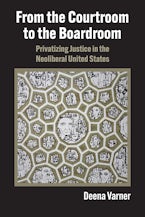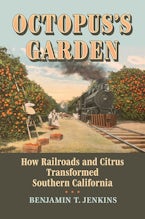“What if American Studies is defined not so much in the pages of the most cutting-edge publications, but through what happens in our classrooms and other learning spaces?” In Teaching American Studies Elizabeth Duclos-Orsello, Joseph Entin, and Rebecca Hill ask a diverse group of American Studies educators to respond to that question by writing chapters about teaching that use a classroom activity or a particular course to reflect on the state of the field of American Studies.
Teaching American Studies speaks to teachers with a wide range of relationships to the field. To start, it is a useful how-to guide for faculty who might be new to, or unfamiliar with, American Studies. Each author brings the reader into their classes to offer specific, concrete details about their pedagogical practice, and their students’ learning. The resulting chapters connect theory and educational action as well as share challenges, difficulties, and lessons learned. The volume also provides a collective impression of American Studies from the point of view of students and teachers. What primary and secondary texts and what theoretical challenges and issues do faculty use to organize their teaching? How does the teaching we do respond to our institutional and educational contexts? How do our experiences and those of our students challenge or change our understanding of American Studies? Chapters in this collection discuss teaching a broad range of materials, from memoirs and novels by Anne Moody and Octavia Butler to cutting-edge cultural theory, to the widely used collection Keywords for American Cultural Studies.
But the chapters in this collection are also about dancing, eating, and walking around a campus to view statues and gravestones. They are about teaching during the era of Donald Trump, Black Lives Matter, and giving up authority in the classroom.
Teaching American Studies is both a new way to think about American Studies and a timely collection of effective ways to teach about race, gender, sexuality, and power in a moment of political polarization and intense public scrutiny of universities.
Table of Contents
Foreword, Roderick A. Ferguson
Acknowledgments
Introduction: How Pedagogical Practice Defines American Studies, Elizabeth Duclos-Orsello, Joseph Entin, and Rebecca Hill
Part I. Behond the Syllabus: Planning and Transforming Whole Courses
1. Course Objectives
On Resisting Solutions to the “Race Problem” in the Southern STEM Classroom, Nihad M. Farooq
2. Teaching an Introductory Master's Degree Course, Paul Lauter
3. Teaching the Medical Other
Thinking beyond Assumptions through the History of Midwifery, Paul J. Croce
4. Always the Good Guys
Latinx Studies and the Myth of American Exceptionalism, Guillermo Avila-Saavedra
Part II. Unpacking the Familiar, Introducing the New: Teaching Key Texts and Terms
5. When an Old Assignment Becomes New Again
Teaching Benedict Anderson’s Imagined Communities in the Age of #BlackLivesMatter, Catherine McNicol Stock
6. Coalition Time in the American Studies Classroom, Richard T. Rodríguez
7. Teaching American Studies One Word at a Time, Linda Stewart
8. Our “Positive Obsession”
Teaching Interdisciplinary American Studies through Octavia Butler’s Lfe and Work, Sarah Hentges
Part III. Individual Assignments: Challenges, Adjustments, and Innovations
9. Teaching Theory in American Studies
Efforts at Unsettling Home in Three Assignments, Rebecca Hill
10. Reppin’ American Studies
Asian Pacific Islander American Studies and Popular Culture as Pedagogy, Stanley Thangaraj
11. “Mister, How Come We Never Learned This?”
Teaching American Studies in a High School Setting, Dave DePietro
Let This Seminar Be a Starting Point
Digital Storytelling and the African American Experience, Kabria Baumgartner
Part IV. Movements and/in the Classroom: Affect, Students, and Shifting Boundaries in American Studies
13. “Gonna Stomp Some Rump”
Embodied Learning and the Politics of Pleasure, Wendy Kozol
14. Don’t Look Award
The Bodies of American Studies, Adriana Estill
15. Making American Studies Great Again?
Teaching the Nation under Trumpism, Megan Bayles and Julie Sze
16. #BlackLivesMatter and Feminist Pedagogy
Teaching a Movement Unfolding, Aimee Bahng and Reena Goldthree
Part V. American Studies Outside: Rethinking the Classroom and Sites of Learning
17. Obama Loves Sweet Potato Pie
American Studies at a Food Service Training Academy, Doris Friedensohn
18. Ruined for Life
Cocreation, Service-Learning, and Taking American Studies Scholarship Seriously in an American Studies Intro Course, Elizabeth Duclos-Orsello, Krisin Anderson, Jake Lefker, and Rosario Ubiera-Minaya
19. Monumental Protest; or, Remaking Places through AR, Ingrid Gessner
20. “The Walk of Memory”
An Excursion into Race, Place, and History in the (Southern) American Studies Classroom, Kendra Hamilton
Afterword, Kandice Chuh
List of Contributors
Index












